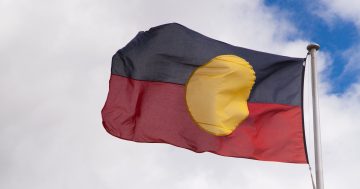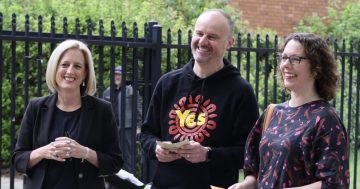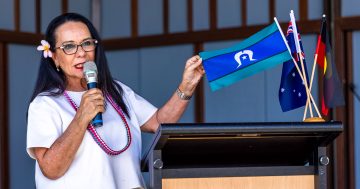
Last week the Prime Minister released the annual Closing the Gap Report which reports on progress towards our commitment of closing the gap between Aboriginal and Torres Strait Islander peoples and non-Indigenous Australians in areas including life expectancy, health outcomes, education attainment, employment and wellbeing.
This is the ninth report of its kind and is sobering reading. It reveals that across the country we are not on track to close the gap, with Australia unlikely to meet the targets set in six of the seven theme areas identified as key to improving the lives of the First Australians. This report highlights the reality that Aboriginal and Torres Strait Islander people continue to be subject to systemic disadvantage across the country, and this results in lives that are shorter, people who are sicker and families that are poorer than other members of our community.
In these types of reports, the ACT often performs better than other jurisdictions due to our socio-economic characteristics and the fact we are an urban community. In this report however there is little to celebrate in relation to our performance in closing the gap.
The report does find that in some measures we are doing better than the rest of the country. For example, school attendance is close to universal and we have better year 12 completion rates than other jurisdictions. Other areas are not as positive. While the datasets are small, it appears that the ACT has fallen behind NSW, Victoria, Queensland and Tasmania in relation to reaching minimum standards for reading for year three students. While higher than other jurisdictions, the ACT has slipped back in relation to the level of employment of our Aboriginal and Torres Strait Islander citizens. Nationally, the child mortality rates remain unacceptably high, and life expectancy rates remain well below those of other Australians. The figures around chronic health are alarming.
The one positive thing about reports such as these is that when we measure our performance and find we are failing at a community, policy and systemic level, this can galvanise us to do better. The challenge is to identify what needs to be done and to move to action.
Aboriginal and Torres Strait Islander leaders are in no doubt about what needs to be done to improve the situation for their community. They are calling to be intimately involved in identifying solutions. The National Congress of Australia’s First People have developed the Redfern Statement as a blueprint for action which identifies many changes, reversing cuts experienced by Aboriginal and Torres Strait Islander Services and adding a target aimed at reducing imprisonment rates.
I completely agree that we need to do better in working to acknowledge and respond to the expertise and experience that the Aboriginal and Torres Strait Islander communities have in addressing the significant challenges faced by the community. Locally, we have made the first step through establishing and empowering the Aboriginal and Torres Strait Islander Elected Body to work with government on these issues but there is so much more to do. We can start by listening, learning, engaging and acknowledging the impact of our privilege and advantage. We then need to translate these learnings into action.
What do you think? Why aren’t we doing better given our advantages and affluence as a community? What else can we do to ensure there is equality in opportunity and outcomes for our whole community?



















